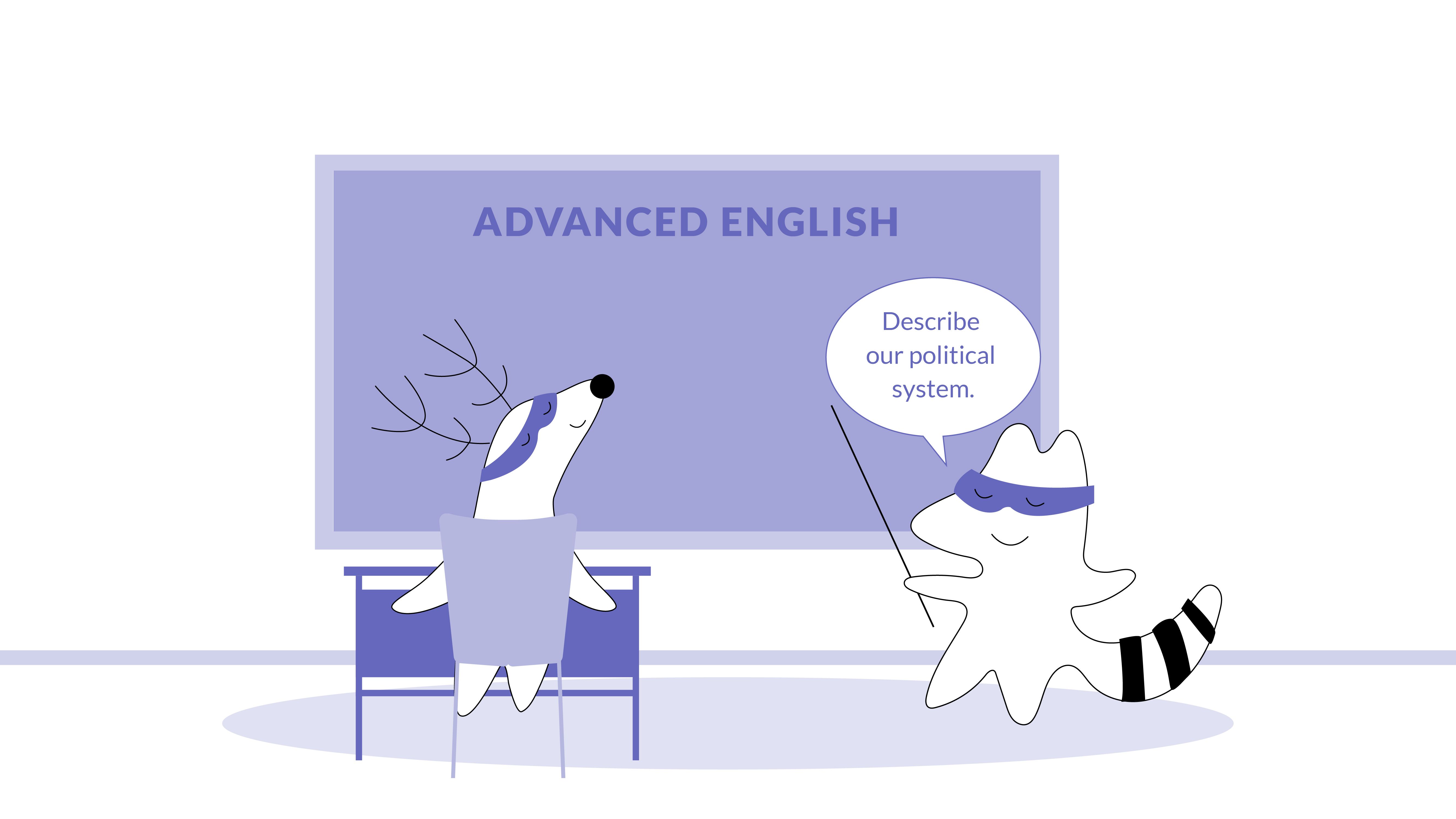
English standardized tests are known worldwide and taken by children, adolescents, and adults alike, because despite the investment you have to make to prepare for them, these exams offer many benefits. As these tests are designed to evaluate your reading, writing, speaking, and listening skills, they’ll help you better understand your language abilities and identify your strengths and weaknesses.
Also, by passing the test, you'll have proof of your language proficiency, which can be a great confidence booster. And, let's not forget that English tests can also boost your employability, as you'll be able to demonstrate to potential employers that you have the necessary language skills for the job.
Most Popular English Proficiency Tests
Several popular exams test English language skills in a standardized way. These are widely recognized and accepted by universities, employers, and immigration authorities. The most popular English proficiency tests are:
- TOEFL (Test of English as a Foreign Language)
- IELTS (International English Language Testing System)
- Cambridge English Language Assessment tests (including the Cambridge English: Proficiency (CPE), Cambridge English: Advanced (CAE), and Cambridge English: First (FCE) exams)
- PTE Academic (Pearson Test of English Academic)
- TOEIC (Test of English for International Communication)
These tests differ in terms of their format, content, and scoring, but they are all designed to assess your ability to communicate effectively in English.
Your choice of English language proficiency test may depend on the specific requirements of the organization or institution that requests your results or your personal preference.
OPI and OPIC
The OPI and OPIC English language proficiency tests, developed by the American Council on the Teaching of Foreign Languages (ACTFL), are also very popular English language proficiency tests.
On the one hand, the OPI (Oral Proficiency Interview) is a test that focuses on how you speak (fluently and accurately). The test is conducted by a certified tester who engages you in a conversation, asking questions related to your personal background, interests, and experiences. The conversation is then rated on a scale from novice to superior based on your proficiency.

On the other hand, the OPIC (Oral Proficiency Interview by Computer) is a computer-based speaking test and is more focused on professional and academic settings. The test consists of a series of recorded prompts that simulate real-life situations, such as job interviews, business meetings, and academic presentations.
Cambridge English Tests
The Cambridge English Language Assessment tests are very famous and were developed by the University of Cambridge. These tests are widely recognized by universities, employers, and governments around the world as evidence of English language proficiency.
There are several different Cambridge English tests available, each designed for a specific level of English proficiency and for specific purposes. These tests include:
KET
The KET exams are designed for learners who have a basic level of English proficiency and who want to demonstrate their ability to communicate in everyday situations (for example, children who are learning the language at school or at an institute).
These exams test the four language skills - reading, writing, listening, and speaking - and they also assess the ability to understand and use basic English phrases, vocabulary, and grammar structures. The KET exams consist of two parts: Reading and Writing, and Listening and Speaking.
PET
The PET Cambridge exam, also known as the Preliminary English Test, is designed for intermediate-level learners of English and is commonly taken by individuals who are learning English as a second language.
The Reading section consists of multiple-choice questions using pieces of discourse such as newspaper articles, advertisements, and instructions. In the Writing section, you'll be asked to write an email or a short essay to show you can write coherently and effectively in English.
You will also have to show proficiency in listening by hearing and understanding spoken English in various contexts. Finally, the Speaking section involves a one-on-one interview between an examiner and the test-taker.
FCE
Passing the FCE demonstrates that you have a high level of English proficiency, which can open up opportunities for further education or career advancement. This exam assesses all four language skills (reading, writing, listening, and speaking), so studying for it can help you improve your abilities as a whole.
It will also provide motivation and direction for your language learning. Having a clear goal to work towards can help you stay focused and motivated, and it can provide a sense of achievement when you pass the exam.
CAE
The CAE is a more advanced exam than the FCE and is designed for students with a high level of English proficiency, including more complex vocabulary and grammar exercises. Also, it includes tasks that require critical thinking, analysis, and synthesis of information.
Passing the CAE demonstrates a high level of English proficiency and is often required for admission to universities in English-speaking countries or for certain types of employment.
CPE
This is the highest level of the Cambridge English tests, designed for test-takers with a very high level of English proficiency. It requires a lot of effort and time to get ready for CPE.
TOEFL (Test of English as a Foreign Language)
The TOEFL is a computer-based or paper-based test that evaluates English ability in a more academic setting. If you decide to take the TOEFL, you'll be reading about academic topics and writing essays and speaking responses to them.

The exam is scored on a scale of 0 to 120, with each section scored separately, and is typically taken by non-native speakers who are seeking admission to universities or other educational institutions where English is the language of instruction. The test is also sometimes required for employment in certain fields, such as international business or research.
IELTS (International English Language Testing System)
The IELTS test is accepted by universities in the UK, Australia, and other English-speaking countries as evidence of English language proficiency.
While the TOEFL and IELTS are similar in many ways, they differ in their format, content, and scoring. First, the IELTS consists of four sections: Listening, Reading, Writing, and Speaking. The test is timed, and each section has a set number of questions and time limit.
In terms of scoring, it uses a scale of 0 to 9, with half-point increments. A score of 6 or 6.5 is generally considered a good score and indicates a moderate level of English proficiency, while a score of 7 or above is considered a high level.
The test is sometimes required for employment in certain fields, such as healthcare, engineering, or law. This is the only English language test some countries requireas part of their immigration process.
How to Choose the Right Test for You
Ready to choose the English language proficiency test you want or need to sit for? You need to consider your goals, target institution or organization, preferred test format, and test-taking experience.
Here are some tips to help you choose the right one:
Determine Your Goals
Are you taking the test to meet admission requirements for a university, to obtain a job or a visa, or to improve your language skills? Knowing your goals will help you choose the right test that meets your needs.

It's not the same to sit for a test to understand your current level as doing so because you're applying for a job. So, the first thing is to check the language proficiency requirements of the institution or organization you are applying to.
Different institutions or organizations may require different types of tests or specific score levels. For example, the IELTS exam is typically asked for at British universities, while TOEFL is more geared toward American contexts.
Consider the Test Format
Some tests may be offered online or in person, and they may have different formats, such as being computer-based or paper-based. Also, look at the test content and structure to see if it matches your language skills, experience, and current goals.
Consider your preferences and test-taking experience when choosing a test format. If you've never taken a computer-based exam, you'll need a lot of practice to get up to speed, because these exams are usually very long and complex.
Have a Look at Sample Tests
Take advantage of the free sample tests available online to familiarize yourself with the test format, content, and timing.
Practicing with sample tests can also help you identify your strengths and weaknesses and adjust your preparation accordingly.
What Is the Best Way to Prepare for an English Proficiency Test?
As you can imagine, preparing for an English proficiency exam takes time, effort, and practice. They are not easy and not cheap, either! So, here are some tips on how to prepare for your upcoming English proficiency exam.
Understand the Test Format & Content
The first thing you need to do is to familiarize yourself with the test format and content by reviewing sample tests, test-taking strategies, and instructions.
You may have a very good understanding of English, but not understanding how the exam works will make you lose valuable time. Knowing the structure and content in advance can help you focus your preparation and improve your performance.
Assess Your Language Skills
Take a practice test or assess your language skills using diagnostic tests to identify your strengths and weaknesses. This can help you create a study plan and focus on areas that need improvement.
Taking mock tests regularly is a great idea to track your progress, understand what areas still need improvement, and adjust your study plan accordingly. Mock tests can also help you get used to the test format and time limits that are so important to get a high score.
Practice Regularly
Regular practice is key to improving your language skills and building your confidence. Don't limit yourself to doing grammar and vocabulary exercises only.
Instead, practice speaking, listening, reading, and writing in English regularly, using tools like language apps, books, articles, videos, and podcasts. And, don't forget to use test preparation materials, such as textbooks, study guides, or even online courses.
Build Vocabulary
Expand your vocabulary by learning new words and phrases related to the test content and topics. In most cases, you won't be dealing with basic words or expressions but rather difficult collocations, academic language, etc.
Don't forget to practice using these words and phrases in context as much as possible, such as in sentences or conversations.
Get Feedback
Seek feedback from a teacher, tutor, or language partner to help you identify areas that need improvement and correct your mistakes. Also, many textbooks that are specific for exam preparation contain the key for the exercises, so you can self-correct.
Getting feedback can also help you improve your communication skills and confidence and ensure success in the exam.
The Bottom Line

In conclusion, English tests can be daunting, but they are essential to achieving fluency and proficiency in the language. With the right preparation and mindset, you can succeed and reap the benefits of improved communication skills, better job prospects, and greater cultural awareness.
Don't be discouraged by past failures or language barriers! Embrace the challenge and take advantage of the numerous resources available to help you succeed, such as textbooks and language apps. Whether you are a student, a professional, or simply someone looking to improve your English, taking an English test is a step in the right direction toward achieving your goals.




